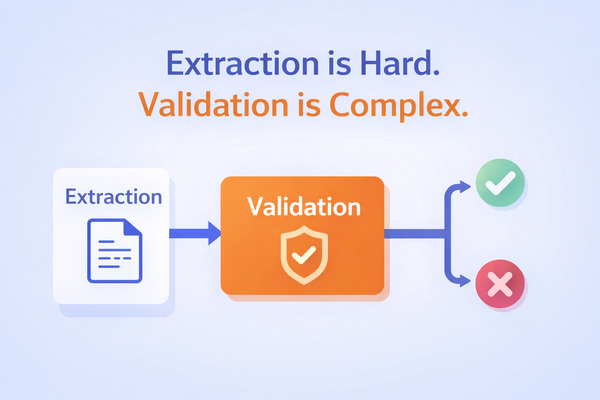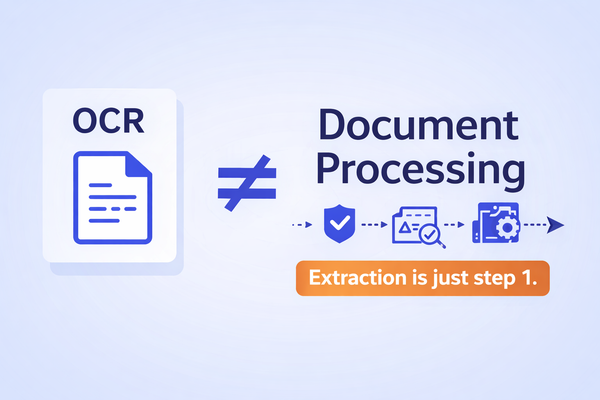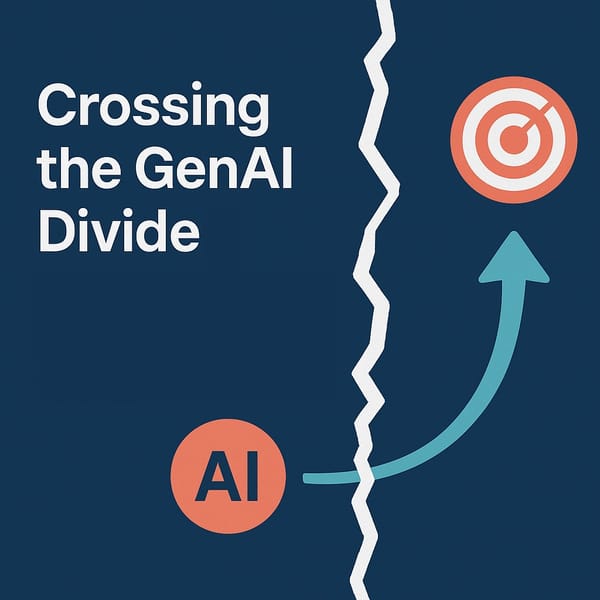Scaling Health Insurance Claims Operations: Achieving Efficiency Without Increasing Headcount or Sacrificing Accuracy
Real-Life Scenario: The Mounting Challenge of Health Insurers’ Claims Operations
Picture a leading health insurer at the peak of annual enrollment. The claims operations team faces mounting pressure as incoming claims flood their systems. Every day, a battalion of reviewers sifts through piles of structured data, scanned medical records, and provider notes. With strict deadlines, evolving policy guidelines, and ever-increasing claim volumes, the risk of delays, inadvertent errors, and swelling administrative costs looms large. Manual review processes strain resources, and scaling up means hiring more staff—a solution with limited sustainability and mounting expense.
Root Causes: Why Legacy Claims Review Falls Short
Manual healthcare claims management is profoundly resource-intensive. Teams bear responsibility for:
- Extracting critical data from both structured fields and unstructured electronic medical records (EMRs)
- Validating submissions against rapidly changing policy rules and compliance requirements
- Manually flagging inconsistencies or suspicious patterns in submissions
- Recommending next steps or decisions within tight timelines
- Assembling everything into clear, audit-ready, structured outputs
The result is a time-consuming process riddled with pain points:
- Delays in claims adjudication leading to dissatisfied members and providers
- Errors in interpretation and coding that drive up dispute rates and administrative costs
- Challenges in scaling operations without ballooning headcount or losing control of decision accuracy
Reimagining Health Insurers Claims Automation: Strategic Leverage of Private AI
How can payers achieve scalable claims processing without compromising precision? The answer lies in health insurers claims automation that is optimized for privacy, regulatory compliance, and seamless workflow integration. By embedding powerful AI into the claims lifecycle, organizations move beyond incremental gains—toward sustainable, future-ready transformation.
AI for Healthcare Claims Review: Unlocking Five High-Impact Use Cases
The most effective organizations leverage AI for healthcare claims review across the entire workflow:
- Automated claim data extraction: AI agents instantly extract relevant information from both structured submissions and free-text medical records (including scanned images and faxes) to accelerate initial intake without human intervention.
- Policy compliance validation: Intelligent algorithms dynamically compare extracted claim details against up-to-date internal policy rules, clinical guidelines, and member coverage records to ensure compliance and reduce costly errors.
- Detection of inconsistencies and anomalies: AI systems flag outliers, incomplete documentation, and coding mismatches, helping reviewers focus on the cases that matter most.
- Decision support and recommendations: Privacy-focused AI agents generate draft approval, denial, or pend decisions, complete with justification and references to sources—streamlining adjudication and audits.
- Structured summary generation: All relevant data, reasoning, and contextual insights are organized into review-ready packets for seamless downstream processing and documentation.
This approach enables robust, scalable claims processing while substantially reducing administrative complexity.
The Agami Advantage: Private AI for Claims Transformation
At Agami, the belief is simple: AI should serve as a trusted partner within the secure perimeter of every payer’s organization. Here’s how Agami’s platform delivers transformative value to health insurers claims automation while keeping privacy and compliance at the forefront:
- Private AI Agents: With the option to deploy within an organization’s virtual private cloud or on-premise, Agami ensures sensitive health and claims data never leaves the customer’s infrastructure. This privacy-focused AI agent deployment model is designed for regulated industries and organizations with strict data residency needs.
- Seamless Workflow Integration: Agami’s agents are engineered to plug directly into core claims management workflows. By augmenting, not replacing, existing systems and roles, the transition is incremental, low-risk, and highly customizable.
- Automated, Policy-Driven Decision Drafting: Agents actively use internal decision rules, policy documentation, and the latest coverage guidelines alongside submitted claims data to produce draft approval or denial rationales. Reviewers receive precise, context-rich recommendations, accelerating reviews and boosting first-pass accuracy.
- NLP for EMR Risk Signal Extraction: Sophisticated natural language processing (NLP) techniques enable Agami’s agents to parse medical terminology, detect critical risk signals, suggest coding, and justify recommendations—direct from free-text EMRs and unstructured documents.
- Cross-Plan and Guideline Checking: For complex or high-value claims, agents cross-reference submitted care plans with internal policies and evidence-based coverage criteria, surfacing issues for reviewer attention and audit readiness.
- Structured Output Generation: All extracted insights, supporting logic, and action items are compiled into concise, standardized digital packets—ready for further action or compliance review.
Operational Impact: Faster Decisions, Consistent Quality, Lower Costs
Deploying Agami’s private AI agents unlocks measurable impact:
- Speed: Automated claim data extraction and validation cut per-claim review times from days to hours (or less), even for complex or high-volume intake periods.
- Accuracy: Continuous policy compliance validation and machine learning-based recommendations increase first-pass adjudication success while reducing disputes and rework.
- Scalability: Payers can handle growing transaction volumes without the need to scale headcount at the same pace, freeing human expertise for nuanced or exceptional cases.
- Transparency: Every automated decision comes with embedded, reviewer-ready rationales for audit, compliance, and peer review.
- Cost Reduction: Integrating AI for healthcare claims review helps reduce administrative costs in healthcare claims operations by diverting routine tasks from high-cost manual workflows.
Privacy-Focused AI Agents: Trust and Governance at the Core
Health insurers and government payers are rightfully concerned about data security, privacy, and regulatory compliance. Agami’s private AI platform is architected for healthcare’s unique legal and operational landscape. By running exclusively within a payer’s own virtual private cloud AI deployment or on-premise hardware, Agami enables:
- Strict control over protected health information (PHI) and sensitive policy rules
- Zero third-party cloud exposure for claims data and medical records
- Native support for HIPAA, HITRUST, and other regulatory frameworks
This empowers organizations to innovate without compromise.
Modernizing Payer Operations: From Pilot to Production
Unlike generic automation tools, Agami’s platform is tailored for the nuanced reality of payer claims workflows. The journey starts with targeted pilots—such as automating the review of specific high-volume claim types or applying NLP-driven agents to complex medical records. Results from these trials inform the gradual, organization-wide rollout:
- Pilot Stage: Select one or more claims segments (e.g., inpatient hospital, specialty pharmacy, durable medical equipment). Deploy agents to automate extraction, validation, and draft decision recommendations. Measure time savings, accuracy, and reviewer uptake.
- Integration: Embed agents into broader claims workflows, connecting with existing intake, adjudication, and payment platforms. Expand coverage to additional claim and policy types.
- Optimization: Continuously tune AI models using feedback from human reviewers, regulatory audits, and evolving policy documentation.
- Scaling: Extend automation to new business lines, regions, or languages—without the need for exponential growth in operations headcount.
Realizing the Strategic Benefits of Scalable Claims Processing
The end result for health insurers claims automation is transformative:
- Accelerated payment timelines, boosting provider and member satisfaction
- Greater uniformity in decisions across diverse claim scenarios and reviewers
- Sharper focus of human expertise on exception handling, complex appeals, and member engagement
- Audit-ready documentation and defensible, explainable outcomes for every automated recommendation
- Agility to launch new plan designs, benefit rules, or partnership models without bottlenecking claims operations
Why Health Insurers Can’t Afford to Wait
The calculus is clear: Attempts to scale manual review under current models will inevitably collide with workforce limitations, margin pressures, and member expectations for transparency and speed. Industry leaders are already shifting toward AI for healthcare claims review and privacy-focused AI agents to leap ahead of stagnant, cost-heavy operational paradigms. Whether serving commercial insurance, government programs, or third-party administration, integrated automation is rapidly becoming table stakes for competitive advantage.
Begin Your Claims Transformation Journey
Agami is committed to helping healthcare payers reduce administrative costs in healthcare claims, achieve policy compliance validation, and deliver a superior experience to both members and providers. With a focus on private, policy-driven automation you can trust, Agami’s agents are the catalyst for claims excellence in a rapidly evolving industry.
Ready to reimagine your approach to scalable claims processing without sacrificing accuracy or privacy? Talk to Us.
Frequently Asked Questions
1. What challenges do small lending firms face in the current financial market?
Small lending firms often struggle with manual processes, inefficiencies in operations, and the need to compete with larger financial institutions, which can hinder their scalability and growth.
2. How can AI improve credit analysis for small lending firms?
AI can automate the credit analysis process by streamlining data retrieval from Credit Bureaus, integrating with existing systems to collect internal financial information, and presenting standardized recommendations for loan approval, thereby enhancing productivity and accuracy.
3. What are the benefits of using AI in loan processing?
Implementing AI in loan processing can lead to faster approval times, reduced operational costs, more accurate credit assessments, and improved customer experiences, enabling small firms to compete more effectively in the lending market.
4. How does Agami’s AI platform ensure data privacy for small lending firms?
Agami's private AI platform is hosted in secure Virtual Private Clouds or on-premise, giving small lending firms complete control over their data to ensure compliance with privacy regulations.
5. Can small lending firms integrate Agami's solution with their existing tools?
Yes, Agami's AI agents are designed to seamlessly integrate with workplace tools like SharePoint, Teams, and Outlook, facilitating a smooth transition to an AI-enhanced workflow.
6. What steps can small lending firms take to become more competitive?
By leveraging AI for efficient data management and analysis, small lending firms can optimize their operational workflows, improve decision-making, and enhance customer service, ultimately leading to sustained growth.





